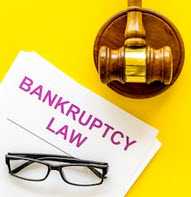Debtor-in-Possession Bank Accounts and Rules: What Happens When You File a Chapter 11 for a Small Business?

What happens when a small business in the Tampa Bay area files for Chapter 11 bankruptcy? Let’s look in particular at the requirement for the business owner to open debtor-in-possession bank account. What rules does the debtor have to follow? In order to understand the answers to these questions, it is important to learn more about Chapter 11 bankruptcy for small businesses and to understand the term “debtor in possession.”
A debtor in possession must follow specific rules concerning bank accounts, as well as other rules concerning payment of fees and taxes. We will explain below.
What is a Debtor in Possession?
Under the U.S. Bankruptcy Code, a debtor in possession (DIP) in a Chapter 11 bankruptcy case is often a business—but it can also be a person—that has filed for bankruptcy but remains in possession of property for which one or more creditors still have rights. In other words, a DIP in a Chapter 11 case is a business that is still conducting business during its Chapter 11 bankruptcy case.
For example, a debtor in possession might be a restaurant that has recently filed for Chapter 11 bankruptcy but wants to keep running the restaurant during the bankruptcy proceeding. In order for the restaurant to remain open, the business will need to use kitchen equipment and a delivery vehicle that were purchased on credit and for which creditors still have rights.
In order to continue using property as a debtor in possession, the business must follow specific rules concerning the debtor-in-possession bank account, as well as abide by other requirements. While the business is open during the Chapter 11 proceeding, the business has a duty to act in the best interest of the creditors and must ask the court if it wants to engage in any business activities that are outside the regular scope of the business.
Debtor-In-Possession Bank Account
A fact sheet from the U.S. Department of Justice explains that debtors in possession in Chapter 11 bankruptcy cases have specific obligations with regard to bank accounts. They must:
- Immediately close all bank accounts that the business maintained prior to filing for Chapter 11 bankruptcy;
- Make plans to open new accounts by contacting the Office of the U.S. Trustee to determine whether a specific bank has executed an agreement with the U.S. Trustee to meet certain requirements;
- Open new bank account(s) that are specifically designated as “Debtor in Possession” account(s), and open those new bank accounts at a bank that already has executed an agreement with the U.S. bankruptcy trustee that meets particular requirements under the U.S. Bankruptcy Code;
- Complete and sign a “Debtor in Possession Statement of Depository and Authorization for Release of Information” form (this also must be completed and signed by the bank); and
- Serve original “Debtor in Possession Statement of Depository and Authorization for Release of Information” form on the U.S. Trustee.
Other Requirements for a Debtor in Possession
In addition to the requirements concerning bank accounts, the U.S. Department of Justice also lists the following requirements for Chapter 11 debtors in possession:
- Maintain insurance coverage (including liability coverage) on all business assets;
- File monthly financial reports;
- Pay quarterly fee to the U.S. Trustee until the Chapter 11 bankruptcy case is closed; and
- File all tax returns in a timely manner after filing for Chapter 11 bankruptcy, and pay all taxes in a timely manner.
Contact a Chapter 11 Bankruptcy Attorney in Tampa Bay
If you have questions about the requirements of a debtor in possession during a Chapter 11 bankruptcy proceeding, or if you want to know more about filing for bankruptcy as a small business, you should speak with a Tampa Bay bankruptcy attorney about your case. Contact Samantha L. Dammer to learn more about the services we provide to small business owners in the Tampa area.
Resource:
justice.gov/ust-regions-r04/file/ch11_guidelines.pdf/download
